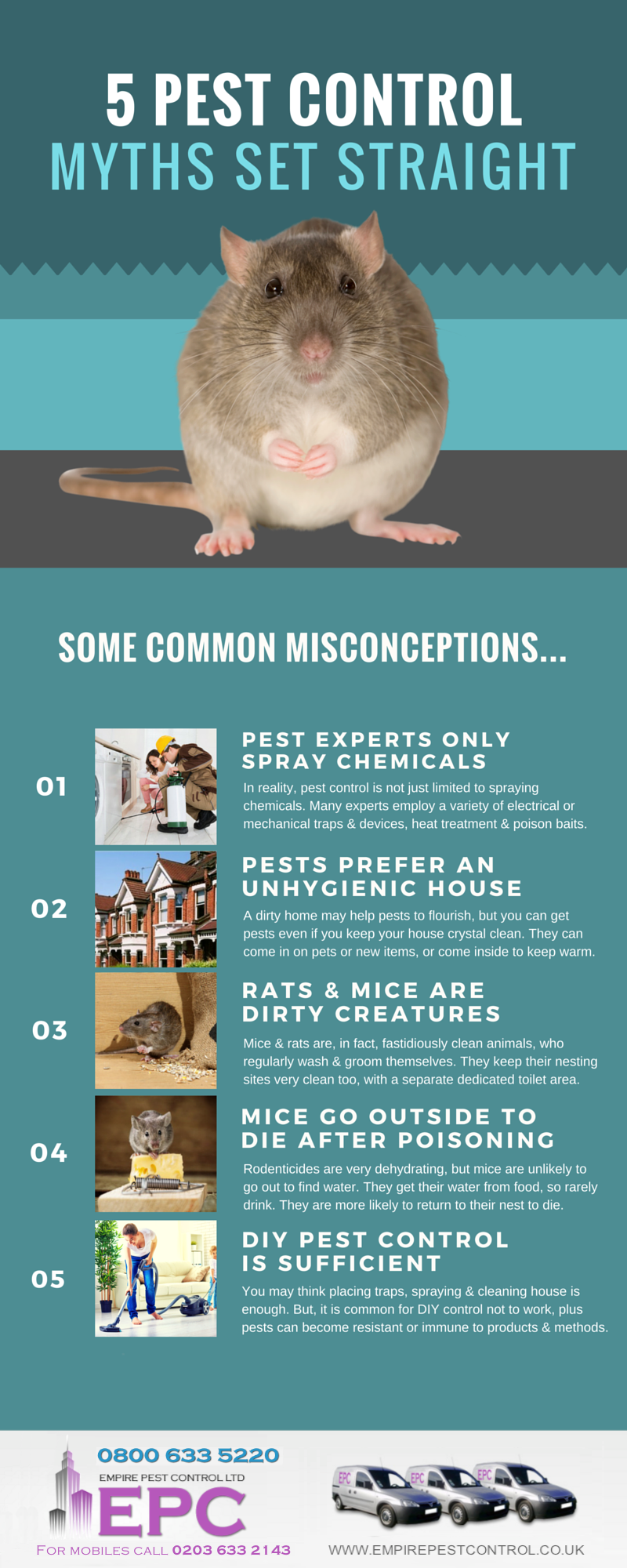Acquiring Expertise On Exactly How Rodents Act Is Essential For Properly Managing Pest Problems. Professionals Give Beneficial Understandings On This Matter
Acquiring Expertise On Exactly How Rodents Act Is Essential For Properly Managing Pest Problems. Professionals Give Beneficial Understandings On This Matter
Blog Article
Produced By-Craig Brun
Imagine being able to expect the actions of your challengers in a game of chess, constantly remaining one action in advance.
Worldwide of insect control, comprehending rodent behavior resembles having that tactical benefit. By gaining expert insights into the nesting behaviors, feeding patterns, and interaction and social behavior of rats, you can properly fight these pesky animals.
But exactly how precisely do rodents act, and why is it vital to know? In this conversation, we will unwind the enigmas of rodent habits, offering you with useful expertise that will assist you stay ahead in the battle against parasites.
Are you prepared to reveal the tricks of these shrewd creatures?
Nesting Behaviors
To comprehend rodent habits and effectively control parasites, it is necessary to gain insight right into their nesting behaviors.
Rats, such as mice and rats, have a natural instinct to find shelter and produce nests where they really feel risk-free and safe and secure. These nests function as their homes, reproducing grounds, and storage space locations for food. Comprehending their nesting practices can aid you determine potential locations of problem and apply targeted control actions.
Rats normally like nesting in dark, private rooms, such as attic rooms, cellars, crawl spaces, and wall surface voids. They utilize products like shredded paper, textile, insulation, and also chewed-up electrical cords to build their nests.
Feeding Patterns
Rodents show distinctive feeding patterns that play an essential function in their habits and can notify effective insect control approaches. Understanding these patterns is necessary for executing effective parasite control actions.
Rodents are opportunistic feeders, implying they'll consume whatever food is conveniently available. Highly recommended Internet page prefer high-calorie foods such as grains, nuts, and seeds. This is why appropriate storage space of food and waste management are essential in protecting against rodent invasions.
Furthermore, rodents are nighttime, which means they're most active during the evening when they search for food. By recognizing their feeding patterns, you can strategically put catches and lures to maximize their effectiveness.
Maintaining food resources hard to reach and maintaining a clean environment can aid discourage rodents and minimize the danger of infestation.
Interaction and Social Actions
Understanding just how rodents connect and interact socially is essential for effective insect control methods. Rats, like mice and rats, have complex communication systems that they make use of to share details to every other and collaborate their activities. Below are please click the next document of rodent communication and social actions:
1. Vocalizations: Rats generate a variety of singing noises, including squeaks, tweets, and chattering, to communicate with each other. These articulations can share numerous messages, such as danger warnings or mating phone calls.
2. Scent marking: Rats make use of scent glands to leave chemical signals on items and in their setting. These scent marks serve as territorial limits and communicate info regarding reproductive standing, dominance, and social affiliation.
3. Social hierarchy: Rats have a hierarchical social structure, with leading people having accessibility to sources and chosen nesting sites. Understanding this power structure is essential for targeting pest control efforts and recognizing vital people for removal.
Final thought
So, there you have it - a short glance into the remarkable globe of rodent behavior. By recognizing all natural ant killer nesting behaviors, feeding patterns, and interaction, we can much better tackle the problem of insect control.
Did you know that a women mouse can generate up to 10 clutters each year, with each litter containing around 5-6 puppies? best exterminator for mice near me of punctual and effective pest monitoring to stop rodent populations from spiraling out of control.
